Q
What Are the Drawbacks of Toyota Yaris? Learn Before You Buy
Common faults of the Toyota Yaris cover multiple aspects. The brake system warning light may illuminate, in which case the vehicle should be stopped immediately in a safe location and a 4S dealership should be contacted. The engine coolant overheating warning light may also illuminate, requiring prompt stopping to cool the engine. If the charging system warning light comes on, the vehicle should be parked in a safe area and you should seek professional assistance.
Additionally, issues such as stalling after starting, the engine shutting off while driving, or failure to start the vehicle may occur due to various reasons. If uncertain, it is advisable to contact a 4S dealership for diagnosis. When warning lights such as low engine oil pressure illuminate, the specific problem should be determined based on the light's color and flashing pattern.
For example, stalling after starting could result from an intake system leak, throttle wiring or signal issues. In such cases, checking the battery voltage and wiring connections is crucial. For Yaris models equipped with the Toyota 2NZFE electronic control engine, electrical faults may also be a contributing factor.
Regular maintenance is also essential during daily use, such as washing the car promptly after rain, paying attention to undercarriage cleaning and rust prevention, and ensuring the ignition system remains dry in wet weather.
Special Disclaimer: This content is published by users and does not represent the views or position of PCauto.
Related Q&A
Q
What Segment Does Toyota Yaris Belong to?
The Toyota Yaris belongs to the B-Segment, which is the small car class. Vehicles in this class are relatively compact in size, with a length of around 4140mm, a width of about 1730mm, a height of roughly 1475mm, and a wheelbase of 2550mm. With such dimensions, Toyota Yaris can nimbly navigate through city streets.
Generally,Toyota Yaris is affordable, with price ranging from RM 69,576 to RM 91,600, which is a great option for consumers on a tight budget.
The Toyota Yaris weighs approximately 1110 - 1140kg and is powered by a 1.5L naturally aspirated engine. The power output is more than enough for daily commuting. Inside, it can seat five people. The seats are thoughtfully designed, especially the rear seats, which can be split-folded in a 60:40 ratio, allowing for flexible adjustment of the space for passengers and cargo according to your needs.
Moreover, Toyota Yaris has an advantage in fuel efficiency. It runs on gasoline, and it helps the owners save on fuel costs during daily use.
Q
What's the Reslae Value of Toyota Yaris?
The resale value of the Toyota Yaris is influenced by various factors such as the vehicle's age, condition, mileage, market supply and demand, and vehicle configuration. Generally, the resale value rate of a 3 to 5 years old Toyota Yaris is about 60% to 80%. Take popular models like the 1.5G or 1.5V as an example. If the car is well - maintained and has a reasonable mileage (about 10,000 to 20,000 kilometers per year on average), a 3 - year - old Yaris can still retain about 70% of its original price. Moreover, the high reliability of the Toyota brand and its low maintenance costs are important factors supporting its resale value. It is recommended that car owners perform regular original - factory maintenance and keep complete maintenance records, which will help increase the second - hand resale value. Market conditions may change due to the economic environment and model upgrades. Therefore, for the most accurate resale value estimate, you can refer to the transaction prices of similar models on local used - car dealers or online evaluation platforms (such as Carlist or Mudah) for comparison.
Q
What's the Engine Displacement of Toyota Yaris?
The Toyota Yaris is equipped with a 1.5L naturally aspirated engine (engine displacement: 1496cc), a small yet efficient powertrain that delivers balanced performance and fuel economy, making it ideal for city commuting and daily use. This 1.5L Dual VVT-i engine produces decent torque at low RPMs, paired with a CVT transmission, offering smooth and fuel-efficient driving. The official fuel consumption figures are approximately 5.3 to 5.9L per 100km (varies slightly depending on driving conditions and model specifications).
The 1.5L displacement of the Yaris aligns well with Malaysian consumers' preferences, providing agile urban driving while maintaining low maintenance costs. Additionally, its 1.5L engine size keeps road tax affordable, contributing to lower long-term ownership expenses.
Q
What Engine Is Equipped by Toyota Yaris?
The Toyota Yaris is equipped with a 1.5 - liter (1496cc) in - line four - cylinder naturally aspirated engine, coded as 2NR - FE. It adopts the Dual VVT - i dual variable valve timing technology to optimize fuel efficiency and power output. The maximum horsepower is around 107hp, and the peak torque is approximately 140Nm. It is paired with the Super CVT - i continuously variable transmission. The overall power performance is smooth and fuel - efficient.
This engine emphasizes reliability and economy, making it suitable for city driving. Meanwhile, Toyota's mature technology also ensures low maintenance costs. It can still maintain stable performance in the hot climate and congested traffic conditions in Malaysia.
In addition, although this engine is not high - performance - oriented, it has sufficient low - speed torque and a brisk start. Paired with the CVT transmission, it can achieve a combined fuel consumption of about 5.3 - 5.9L/100km, taking into account both practicality and economy, which meets the needs of local consumers for small hatchbacks.
Q
What's the Type of Toyota Yaris' Transmission?
The type of the Toyota Yaris' transmission is CVT (Continuously Variable Transmission), which can offer a smooth shifting, effectively reducing the sense of jerk during gear changes and making the driving process more comfortable and stable. Utilizing a belt and variable-diameter pulley system to achieve seamless ratio changes, the CVT keeps the engine operating within its optimal RPM range, thereby improving fuel efficiency.
With 7 simulated gear steps, this transmission adapts to various driving scenarios, providing appropriate power delivery whether in stop-and-go city traffic or during long highway journeys. The system ensures responsive performance across different road conditions while maintaining the inherent advantages of CVT technology.
Q
What’s the PCD Size of Toyota Yaris?
The full English name of PCD is Pitch Circle Diameter, which refers to the pitch circle diameter and is an important parameter of automobile wheels. The PCD sizes of Toyota Yaris models vary across different years. For Toyota Yaris models from 2019 to 2024, their PCD sizes are all 100mm. The PCD size determines the compatibility between the wheel and the vehicle. It represents the diameter of the center circle of the bolt holes on the wheel. If the PCD size isn't appropriate, the wheel won't be properly installed on the vehicle. Understanding the PCD size is crucial when replacing wheels or tires. When choosing suitable modified wheels or spare tires, you need to ensure that the PCD size is the same as the original one of the vehicle. Only in this way can the safety and stability of the vehicle during driving be guaranteed.
Q
Does Toyota Yaris Support Apple Carplay?
Some high - end models of the Toyota Yaris are indeed equipped with multimedia touch display system that supports Apple CarPlay (this depends on the year and model). You can directly connect your iPhone via USB to use functions such as navigation, music, and calls, which enhances driving convenience. However, it should be noted that the entry - level versions may only be equipped with a basic audio system and do not support CarPlay. It is recommended to confirm the specific configuration with the dealer before purchasing a car.
In recent years, Toyota has gradually popularized intelligent connectivity features in many models. Apple CarPlay has become one of the factors considered by many Malaysian consumers before purchasing the vehicle. In addition to CarPlay, some versions may also support Android Auto, allowing users to access their phone functions more flexibly. If your Yaris was made in an earlier year and doesn't have this feature pre - installed, you can also consult the original manufacturer or the authorized service center to see if there is a solution to upgrade the host system.
Q
What's the Brand of Toyota Yaris' Tire?
The brands of original tire equipped by the Toyota Yaris may vary depending on the model year, vehicle grade, and regional dealerships. Common tire suppliers include Bridgestone, Dunlop, or Michelin. The tire specifications are usually 185/60 R15 or 185/55 R16, which are suitable for urban driving (refer to the vehicle configuration sheet for specific details). Tires of these brands focus on wear resistance and low rolling resistance, aligning with the Yaris' economical and practical positioning. Meanwhile, they also offer good wet - road grip, making them suitable for Malaysia's rainy climate.
It is recommended that car owners regularly check the tire pressure and wear. The original recommended tires can ensure optimal fuel efficiency and handling performance. If you need to replace the tires, you can refer to the original specifications on the door frame or in the user manual, or directly consult a Toyota - authorized service center to ensure compatibility.
Q
Is Toyota Yaris a Good Car? Learn the Pros and Cons Here
The Toyota Yaris has its advantages and disadvantages. In terms of advantages, it is equipped with a very rich set of safety features. Standard equipment includes ABS anti - lock braking, vehicle stability control, and seven airbags, which can provide reliable safety protection for both drivers and passengers. Meanwhile, a variety of practical driver assistance systems, such as lane change assist, lane departure warning system, and autonomous emergency braking, are also standard, reducing the risk of accidents. The rear seats in the vehicle are either 60:40 Split - folding or 60:40 Folding seats, allowing for flexible adjustment of the interior space to meet the needs of carrying passengers and cargo. In terms of price, the cost varies among different versions. For example, the 2024 Toyota Yaris 1.5E is priced at RM 88,000, offering a certain range of price options.
However, it also has its drawbacks. The rear brakes of some models use drum brakes, which are slightly inferior to disc brakes in terms of braking performance and heat dissipation. Moreover, in some models, the rear - seat space may not be roomy enough for tall passengers in terms of legroom. Overall, the Toyota Yaris is a vehicle with a high cost - performance ratio that can meet the needs of daily commuting and family use.
Q
What's the Width of Toyota Yaris?
The width of different versions of the Toyota Yaris varies slightly. Generally speaking, the width of the standard version model is 1,730 millimeters, while the width of the Yaris Cross model is 1,770 millimeters. The body width has an impact on the vehicle's handling, stability, and the interior space layout. An appropriate width enables the vehicle to maintain good stability while driving on the road. At the same time, it also determines the size of the interior lateral space, which affects the comfort of passengers. A width of 1,730 millimeters or 1,770 millimeters can well balance the needs of daily driving and interior space.
Latest Q&A
Q
What is a 2020 VW Passat worth?
In 2020, the second - hand car prices of the Volkswagen Passat in Malaysia were approximately between RM90,000 and RM130,000. The specific value depends on factors such as the vehicle's condition, mileage, configuration version, and maintenance records. For example, the price difference between the entry - level version equipped with a 1.8 TSI engine and the high - end 2.0 TSI version can be up to RM30,000. Usually, for each additional year of the vehicle's age or every 10,000 kilometers exceeded in mileage, the price will decrease by 5% to 8%.
It's worth noting that as a German mid - size sedan, the Passat has a better resale value in the second - hand market than some Japanese competitors. This is due to its solid chassis tuning and the reliability of the EA888 engine. At the same time, it is recommended that buyers give priority to vehicles with complete original - factory maintenance records and pay attention to checking the shifting smoothness of the 7 - speed DSG transmission. Such details will significantly affect the long - term use cost. In Malaysia's hot climate, special attention should also be paid to the aging of rubber parts. Regularly replacing the coolant and transmission oil can effectively extend the vehicle's service life.
Q
Is a 2020 VW Passat a good car?
The 2020 Volkswagen Passat is a model worth considering in the Malaysian market. It has won the favor of many consumers for its comfort, practicality, and reliable performance. This car is equipped with a 1.8-liter or 2.0-liter turbocharged engine, which provides smooth power output and good fuel economy, making it suitable for both city driving and long-distance travel in Malaysia.
The interior design is simple yet elegant. The materials used are of high quality, and the space is quite roomy. In particular, there's plenty of legroom in the back row, which makes it perfect for family use. In terms of technology features, it comes with an 8-inch touchscreen, Apple CarPlay, and Android Auto, enhancing the convenience of daily use.
Safety is also one of the Passat's strong points. It comes standard with a number of active safety technologies, such as automatic emergency braking and blind-spot monitoring. In Malaysia, Volkswagen has a relatively well - established after - sales service network, so maintenance is relatively convenient.
It should be noted that as a German - made car, the prices of its spare parts may be slightly higher than those of Japanese cars. However, its overall quality and durability are excellent. For Malaysian consumers who value comfort and practicality, the 2020 Passat is a great choice. It is recommended to compare it with Japanese or Korean models in the same class before making a purchase and make a decision based on your own budget and needs.
Q
How big is the trunk of the Passat 2020?
The 2020 Volkswagen Passat has a trunk capacity of 586 liters. This space is more than ample for daily use or family outings. It can easily hold multiple suitcases or large items, which suits the Malaysian consumers' preference for long - distance travel and their relatively high demand for shopping. If you need to expand the space, the rear seats can be folded down in proportion, further enhancing the storage flexibility and making it convenient to carry longer items like golf clubs or camping gear.
In Malaysia's hot and rainy climate, the Passat's trunk design also takes practicality into account. The interior is flat and the opening is large, facilitating the loading and unloading of items. Among cars in the same class, the Passat's trunk performance is above average, balancing comfort and practicality. It's a great option for users who value space and versatility.
Moreover, the Passat's trunk is equipped with useful anchor points and storage features, which make it easy to secure items or store small things in an organized way. These little details can bring a lot of convenience in daily use.
Q
What gas does a 2020 Passat take?
The 2020 Volkswagen Passat is recommended to use RON 95 unleaded gasoline in the Malaysian market. This is the most common and cost - effective fuel choice in Malaysia, which can fully meet the daily needs of the 1.8 TSI or 2.0 TSI turbocharged engines of this model, and it also complies with local fuel standards and vehicle design specifications. If you're after better performance, you can also opt for RON 97 unleaded gasoline. Its higher octane rating can optimize the engine's anti - knock performance under high - load conditions. However, it should be noted that Malaysia uses a floating oil price mechanism, and the cost of RON 97 is significantly higher than that of RON 95.
It's worth mentioning that all gasoline in Malaysia is required to have detergents that meet EURO 4M standards or higher, which can effectively keep the fuel system clean. Car owners don't need to buy additional fuel additives. For turbocharged models, it's advisable to regularly check the status of the high - pressure fuel pump and injectors at authorized service stations, as these direct - injection engines are quite sensitive to fuel quality.
In addition, there may be differences in fuel supply between the Malaysian Peninsula and some remote areas in East Malaysia. Before a long - distance self - drive trip, you can check the distribution of gas stations through the MyEG or Petronas apps.
Q
What kind of oil does a 2020 Passat use?
For the 2020 Volkswagen Passat in the Malaysian region, it is recommended to use synthetic engine oil that meets the VW 502 00 or VW 504 00 standards. The viscosity is usually 5W - 30 or 5W - 40. The specific choice needs to be adjusted according to the driving environment and climate conditions. In hot climates, 5W - 40 can be given priority to provide more stable high - temperature protection.
Malaysia has a hot and humid climate. It is recommended that car owners change the engine oil regularly every 10,000 kilometers or 12 months (whichever comes first), and ensure that the vehicle is serviced at an authorized dealership or a certified repair center to maintain the validity of the warranty.
It should be noted that if the vehicle is equipped with a GPF (Gasoline Particulate Filter), low - ash engine oil (such as those meeting the VW 504 00 standard) must be used to avoid clogging. The quality of the engine oil directly affects the engine's lifespan and fuel efficiency. It is recommended to choose well - known brands like Castrol, Shell, or Liqui Moly, and select products that are VW - certified. Also, regularly check the engine oil level, especially before long - distance trips.
If you often encounter congested traffic or engage in high - intensity driving, you can appropriately shorten the oil change interval to 8,000 kilometers to optimize protection.
View MoreRelated News
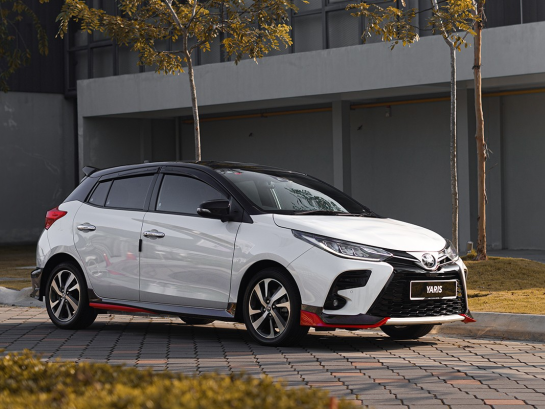
Toyota Yaris Interior Design Revealed: The Ideal Choice for Daily Commutes
AshleyJul 17, 2025
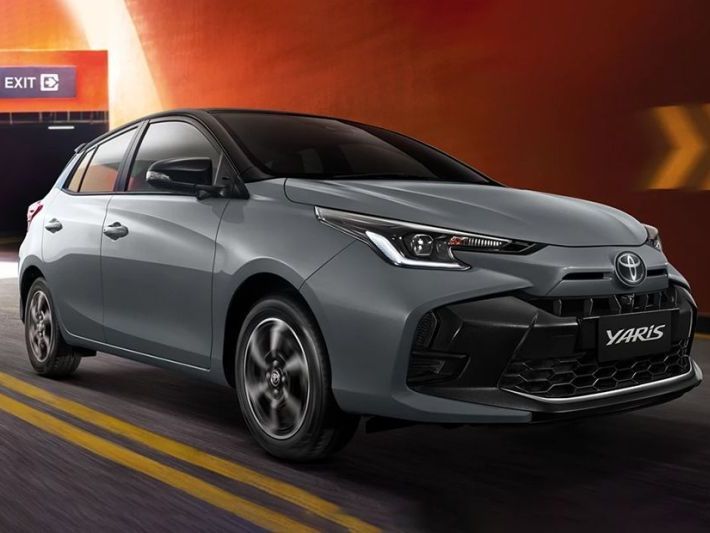
Highlights of the Toyota Yaris: The Perfect Fusion of Outstanding Power and Comfortable Handling
MichaelApr 16, 2025
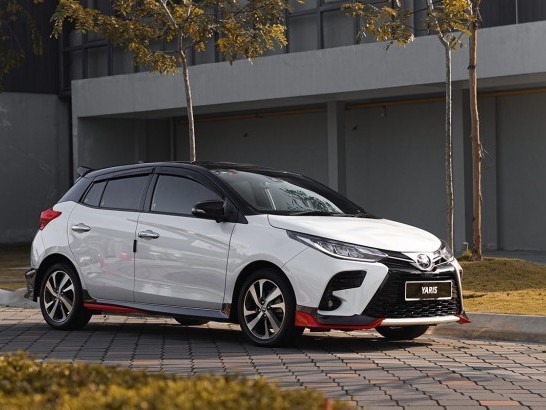
Is my Yaris fuel consumption normal? What should the fuel consumption per 100km be?
MichaelFeb 28, 2025

Toyota takes the crown at the second stop of the 2025 WRC, the GR Yaris helps Toyota take the top of the points table
JamesFeb 19, 2025
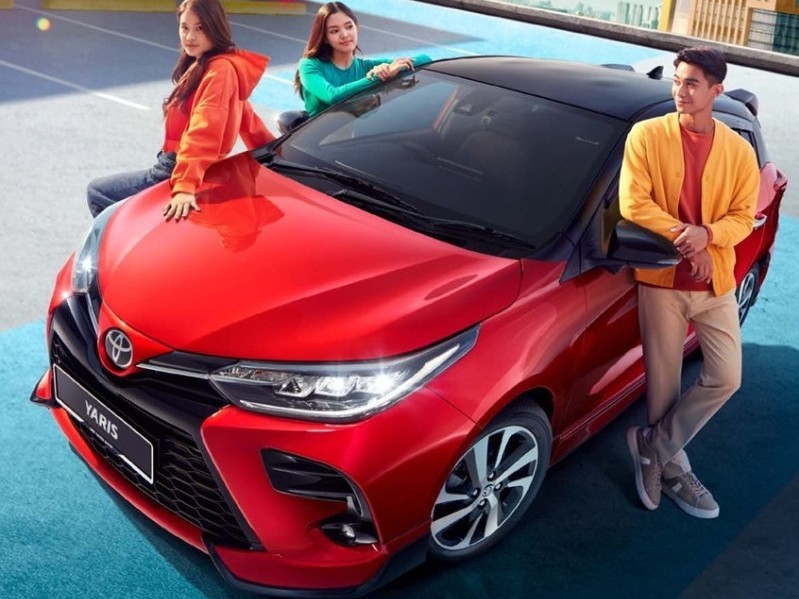
Starting from RM 88,000! The favorite of office workers, Toyota Yaris meets all your needs!
LienSep 4, 2024
View More












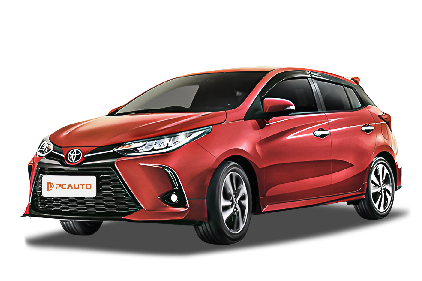
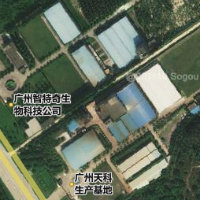


Pros
Cons